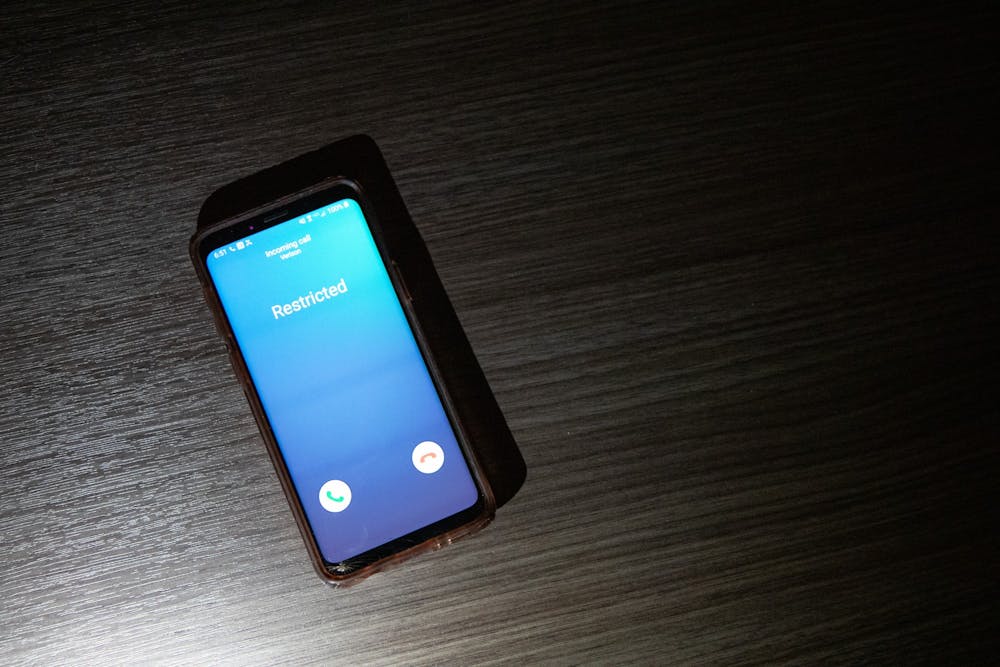In the last two years, around 10 students have reported to IU's Office of International Services they have been the victim of phone scams.
Phone scammers claiming to be government agencies have threatened international students and people with visas with deportation if they don't pay the scammers large sums of money within a certain period of time, according to the office and Bloomington Police Department. .
“I would imagine there might be others that just don't report to this,” senior director in OIS Rendy Schrader said. “I suspect that we see the tip of the iceberg.”
OIS includes a section about scams in their new student orientation for international students and sends warning emails every semester. Schrader said it is difficult to make students pay attention to these warnings prior to when they may be in that situation.
Schrader said one student lost $30,000 to fraudulent phone calls in fall 2019.
Scammers have reportedly claimed to be government agencies and even changed the caller ID to make it appear as though that's where the call is coming from. This is called "spoofing." The Federal Communications Commission defines spoofing as purposely changing the information in the caller ID to disguise the caller’s identity. This is often done to gain the trust of the call receiver by using a local number or a government agency.
Many times fraudulent phone calls will ask for gift cards as payment. Schrader said she reached out to multiple retailers, such as Target, Best Buy, Kroger and Walmart to look out for people who they thought may be purchasing gift cards as part of a scam.
In a case last month, a man received phone calls from a woman claiming to be from U.S. Immigration and Customs Enforcement who said his visa expired and he was not able to stay in the country. The man said he was told he had to pay bail of $2,000 in Target gift cards or be arrested. The man ended up losing $1,000 to the scam.
Schrader said some students have witnessed scammers who managed to "spoof" the OIS phone number as their own.
“They're just caught off guard and they feel like they're in such a vulnerable position,” Schrader said.
Schrader said students have told her the phone calls know enough information about them to make them feel real. She said this may include their country of origin, status as an IU student or major and programs they are involved with. Much of this information can be found online.
Bloomington Police Department Det. Robert Shrake said he doesn’t think the phone calls are targeted and believes they are random. He said many times calls will be sent out to a wide variety of people hoping to affect a few.
“There are a lot of times with the reports made there is the threat of deportation or the threat of international investigation or some foreign government intervention,” Shrake said.
He said people of all demographics fall for various types of fraud, but some people may be more likely to fall for fraudulent calls that affect them personally.
“If ICE called up and tells someone who's not an international student that they're going to be deported, there's typically not a fear of that,” Shrake said.
International students and people in the U.S. temporarily may not have a complete understanding of how the U.S. government works or how it contacts people regarding visas and deportation, Shrake said.
IU Student Legal Services staff attorney Marc Abplanalp said the office encounters students affected by scams a few times a semester.
"They're getting more sophisticated," Abplanalp said.
IU Student Legal Services can help students after they have lost money to take the next steps. Abplanalp said the office attempts to recover some of the money given to scams and helps guide the student financially.
Abplanalp said the government would never contact someone over the phone for money, and it would usually be done through the mail. He also said deportation officers would not call the person but just go to their residence.
“Calling and threatening legal action and asking for money just that in and of itself is a pretty good indication that it's not legitimate,” Abplanalp said. “That's not the way that the government typically deals with these types of issues.”




